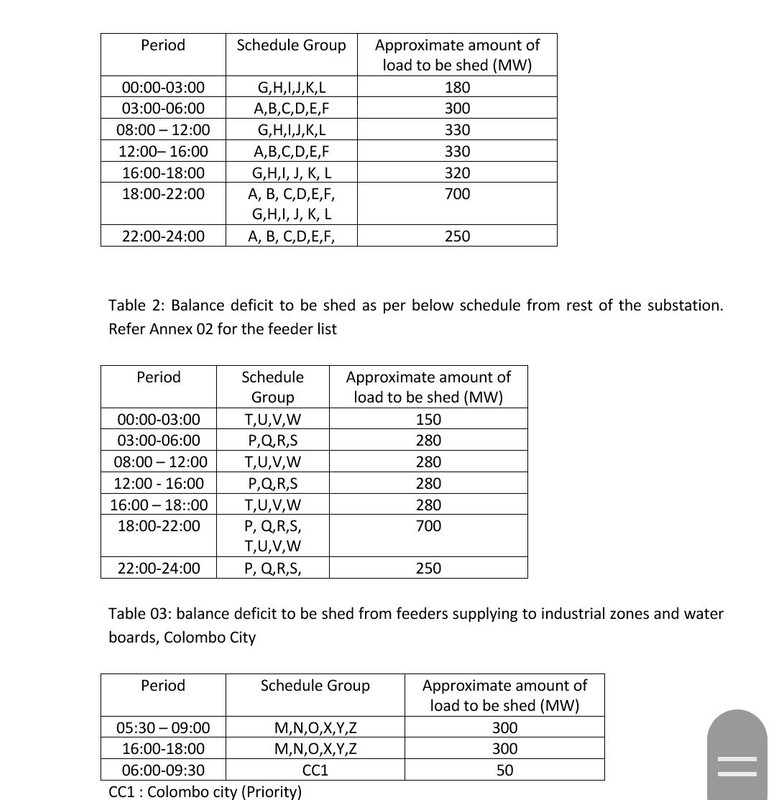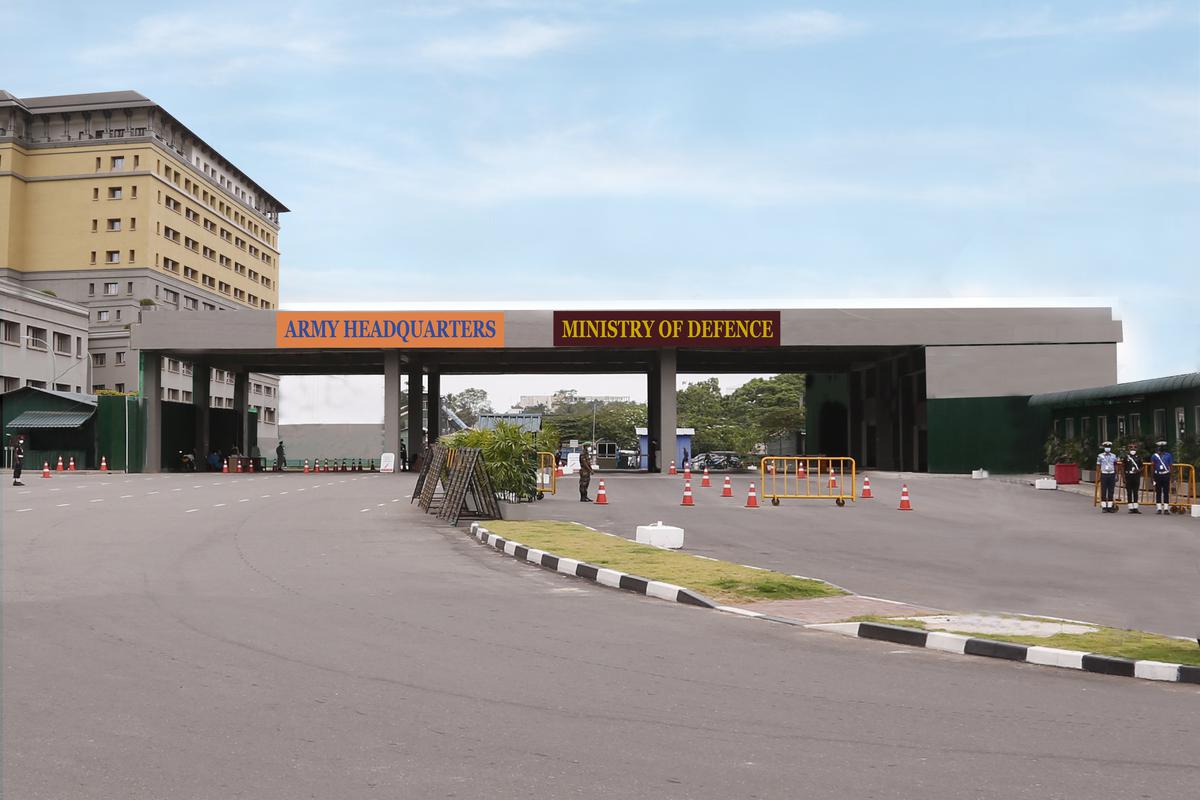ආණ්ඩුවක් විදියට ජනතාවට අසාධාරණයක් වෙන්න අපි ඉඩ තියන්නෙ නැහැ. හැකිතාක් ඉක්මනට මේ ප්රශ්නෙට විසඳුමක් ලබාදෙන්න කටයුතු කරනවා. – අමාත්ය නාමල් රාජපක්ෂ මහතා –
March 31st, 2022තරුණ හා ක්රීඩා අමාත්යාංශය, සංවර්ධන සම්බන්ධීකරණ හා අධීක්ෂණ අමාත්යාංශය, ඩිජිටල් තාක්ෂණ හා ව්යවසාය සංවර්ධන රාජ්ය ආමාත්යාංශය.
බණ්ඩාරවෙල නගරයේ ඉන්ධන පිරවුම්හලක් අසල සිදුවූ සිදුවීම සම්බන්ධයෙන් අදහස් දක්වමින් අද (30) දින අමාත්යවරයා මේ බව පැවසීය.
‘‘මම බණ්ඩාරවෙල එන නිසා ඉන්ධන පිරවුම්හලක පෝලිම් වෙනස් කළා කියලා රටේ ජනතාව අතරට වැරදි මතයක්, එහෙම නැත්නම් බොරු කටකතාවක් ගෙනයාමට උත්සහ දරා තිබෙන බව මාධ්යවල මමත් දැක්කා.
පළවෙනි කාරණය අපි යම් කිසිකිසි කාර්යයකට රාජකාරි මට්ටමින් හෝ පෞද්ගලික මට්ටමින් යනකොට කිසිසේත් සාමාන්ය ජනජීවිතය තුළ ජනතාව අපහසුතාවට පත්වන විදියට උත්සව හෝ වැඩසටහන් සංවිධානය කරන්නෙ නැහැ.
යම් ක්රමවේදයක් තිබුණා නම් මේ උත්සවය නිසා හෝ අපි යන නිසා හෝ එය වෙනස් කරන්න කිසිසේත් ඉඩ තියන්නෙ නැහැ. මෙය සම්පූර්ණයෙන් ම හුදෙක් මඩ ගැසීම සඳහාත් ජනතාව නොමඟ යැවීම සහ ජනතාව අතරට බොරු ප්රචාරයක යැවීමට ගත් උත්සහයක් විදියටයි මා දකින්නෙ.
මේ තියෙන තෙල් හිඟයත් එක්ක අද මේ රටේ ජනතාවට පෝලිමේ ඉන්න සිද්ධවෙලා තියෙනවා ඒ ගැන අපි කණගාටුවෙනවා. ඒ පිළිබඳව අපි සමාව ඉල්ලනවා වගේම අපි වැඩපිළිවෙළක් හදලා තියෙනවා ක්රමානුකූලව ජනතාවට සහන සැපයීමට සහ මේ පෝලිම් නැති කර ජන ජීවිතය සාමාන්ය තැනට රැගෙන එන්න.
මේක මේ අද ඊයේ වුණු කාරණයක් නෙවෙයි. දීර්ඝ කාලයක් මත පැවතගෙන ආ ක්රමවේදයක් මත ඒ වගේම ලෝක තෙල් මිල ඉහළ යාම, ලෝකයේ තිබෙන තෙල් හිඟය, අපේ රටේ තිබෙන ඩොලර්වල අඩුපාඩුකම් නිසා ඇතිවුණු සිදුවීමක්.
අතිගරු ජනාධිපතිතුමා, අගමැතිතුමා ප්රමුඛ ආණ්ඩුව මුදල් අමාත්යවරයා ජාත්යාන්තර සබඳතා උපයෝගී කරගෙන මිත්රශිීලි රටවල් සමග සාකච්ඡා කරමින් අවශ්ය තීන්දු තීරණ ගනිමින් මෙම තත්ත්වය ඉතාමත් ඉක්මනට සාමාන්ය තත්ත්වයට ගෙන ඒමට අවශ්ය පියවර ගෙන ඒ සඳහා වැඩපිළිවෙළක් ක්රියාත්මක කරනවා.
මේවා ඇතුළේ යම්කිසි පිරිසක් උත්සහ කරනවා දේශපාලන වාසි ලබාගන්න. මේක මේ දේශපාලන වාසි ලබාගන්න කටකතා පතුරුවන වෙලාවක් නෙවෙයි. කටකතා පතුරුවලා ජනතාව කුපිත කර ගිනි තියාගෙන ජීවිත නැති කරගෙන දේශපාලන ආණ්ඩු ගත්ත යුගය දැන් අවසන්.
පැය 10ක් විදුලිය නැතිව රටේ ජනතාව අපහසුතාවට පත්වෙලා ඉන්න මේ වෙලාවේ අපි කළ යුත්තේ කටකතා පතුරුවන එක නෙවයි. ඒ සඳහා අවශ්ය විකල්ප ක්රමවේද වලට අපි යා යුතුයි.
අතිගරු ජනාධිපතිතුමා බලයට ආපු වෙලාවේ සිට පුනර්ජනනීය විදුලිය පිළිබඳව කතා කළා. පුනර්ජනනීය විදුලි බලයට අපි ගිහින් තිබුණා නම්, අපි නියඟයක් ගැන, අධික උෂ්ණත්වය ගැන කතා කරන මේ වෙලාවේ උපරිමයෙන් පුනර්ජනනීය විදුලියෙන් ප්රයෝජනයක් අපිට ගන්න තිබුණා.
තෙල් නැව්, ගල් අඟුරු නැව් එනකල් බලා නොසිට දැන්වත් ඉතා ඉක්මනට පුනර්ජනනීය විදුලියට අපි ගියොත් ඊළඟ අවුරුදු කිහිපය ඇතුළත ඊළඟ පරම්පරාවට මෙයට තිරසාර විසඳුමක් ලබාදෙන්න කටයුතු කරන්න පුළුවන්.
ඒ වගේම ජනතාව මේ වෙලාවේ කටකතාවලට රැවටෙන්නෙ නැතිව ආණ්ඩුවේ නිශ්චිත වගකිව යුතු පුද්ගලයකු සිදුකරන ප්රකාශවලට විතරක් ඇහුම්කන් දෙන්න.
අපි දන්නාවා මේක අමාරු කාලයක්, අපහසු කාලයක්. එක එක අයගේ අවශයතාවන් ඉටු කරන්නෙ නැතිව මේ කාලසීමාවේ අපි එකතුවෙලා ඉදිරියට යන්න අවශ්යයි.
මෙවැනි සිදුවීම්වලදී ජනතාවගේ ආවේගශීලිත්වය සාධාරණයි. මොකද තමන්ගේ දරුවෝ ගෙවල්වල ඉන්නවා. ඔවුන්ට පාඩම් කරන්න තියෙනවා. අව්ව සැරයි, රස්නෙයි. විදුලි පංකාවක් දාගන්න විදියක් නැහැ. ඒ වගේම රැකියාවලට යන අයට ඒ්වට යන්න විදියක් නැහැ.
තොරතුරු තාක්ෂණ ක්ෂේත්රයේ වැඩ කරන අයට ගෙදර ඉඳන් වැඩ කරන්න කිව්වත් (Work from Home) වැඩ කරන්න විදුලිය නැහැ. මේ කාරණා පිළිබඳව අපි සංවේදීව බැලිය යුතුයි.
විශේෂයෙන් අපේ පරම්පරාව, මට වඩා බාල පරම්පරාවට කොහොමත් ම විදුලි කප්පාදුව පුරුදු නැහැ. අපේ තාත්තලාගේ කාලේ නම් වැඩිහිටියන්ගේ කාලේ නම් 2005 මහින්ද රාජපක්ෂ මහත්තයාගේ ආණ්ඩුව එනකල් හැමදාම පැය හතර පහක් විදුලිය කැපුණා. චන්ද්රිකා මැඩම්ගේ කාලේ පැය දහයක් විදුලිය කැපුණු අවස්ථා තියෙනවා. කරු ජයසූරිය හිටපු කථානායකතුමාට විදුලි බල අමාත්යවරයා විදියට ඉන්න කාලේ කරුවල ජයසූරිය කියලා කිව්වේ. ඒ කාලේ අයට මේක සාමාන්ය දෙයක්. හැබැයි අද පරම්පරාවට විදුලි කප්පාදුව කියන එක සාමාන්ය දෙයක් නෙවෙයි.
ඒ වගේම අද මේ රට අපි ඩිජිටල්කරණයට අරගෙන ගිහින් තිබෙනවා. ඒ නිසා කොවිඩ් 19 වසංගතයත් එක්ක හැමෝම වගේ ඩිජිටල්කරණයත් සමග තමන්ගේ වැඩ කටයුතු කරන්න පුදුරුවෙලා තිබෙනවා. එවැනි කාලසීමාවක විදුලි කප්පාදුවක් එනකොට ජනතාවට තරහා යන එක සාමාන්ය දෙයක්.
නමුත් අපි ජනතාවගෙන් ඉල්ලන්නේ මේ වෙලාවේ සන්සුන්වෙන්න. තරහා ගියාට මේකට විසඳුමක් ලැබෙන්නෙ නැහැ. ගහගත්තාට, පාරට බැහැලා ගිනිතියා ගත්තට මේකට විසඳුමක් ලැබෙන්නෙ නැහැ. පෙට්ට්රල් ෂෙඩ් එකේ ඉන්න මහත්තුරුන්ට ආයතනවල ඉන්න ප්රධානීන්ට කෑගැහුවට තෙල් ලැබෙන්නෙ නැහැනේ.
ඒ නිසා අපි සන්සුන්ව මේ ගමන අපි යන්න ඕන. වගකීමෙන් අපි කියනවා ආණ්ඩුවක් විදියට ජනතාවට අසාධාරණයක් වෙන්න අපි ඉඩ තියන්නෙ නැහැ. හැකිතාක් ඉක්මනට මේ ප්රශ්නෙට විසඳුමක් ලබාදෙන්න අපි කටයුතු කරනවා.
වරද කවුද භාරගත යුත්තෙ නැත්තෙ කියන කාරණය නෙවෙයි හොයන්න ඕන. ඉතිහාසයට ගිහින් අර ඇමතිට මේක කරන්න පුළුවන්. මේ ඇමතිට කරන්න පුළුවන්. අර ජනාධිපතිවරයා මෙහෙම කළා නම් එහෙම වෙන්නෙ නැහැ. පුනර්ජනනීය විදුලි බලය ගෙනාවා නම් මෙහෙම වෙන්නෙ නැහැ. අතිගරු ජනාධිපති මෛත්රීපාල සිරිසේන ජනාධිපතිතුමාගේ කාලේ එක මෙගාවොට් එකක්වත් දැම්මෙ නැහැ එහෙම දැම්මා නම් මේ සිද්ධිය වෙන්නෙ නැහැ කියලා අපි මේ බොලේ පාස් කිරීම නෙවෙයි මේ වෙලාවේ කළ යුත්තේ. වරද කාගෙද කියන එක අපි මේ ප්රශ්නෙ ඉවර වුණාම හොයාගමු.
වගකිව යුතු ආණ්ඩුවක් විදියට ආණ්ඩුව වගකීම භාර අරගෙන මේ තත්ත්වයෙන් එළියට එන්න කටයුතු කරන්න ඕන සහ මේක ලංකාවට පමණක් ආවේණික වූ කාරණයක් නෙවෙයි .
ඔබ දකිනවා යුරෝපයේ තෙල් පරිභෝජනය අවම කරන්න සමහර නගර පිටින් නිවාඩු දීලා තියනවා. සංඛ්යා ලේඛන නිවැරදි කිරීම්වලට යටත්ව මේ අවුරුද්දේ ජනවාරි මාසයේ 2019 ජනවාරි මාසයට වඩා පෙට්ට්රල්, ඩීසල්වල භාවිතය 30% කින් වැඩිවෙලා තියෙන බව අපි දැක්කා. 30%ක 40%ක ප්රමාණයකින් වූ මෙ වැඩිවීම අවම කරගන්නත් යම්කිසි වැඩපිළිවෙලක් ක්රියාත්මක කරන්න ඕන. සමහර රටවල් මේ වනවිට නිවාඩු දීලා, නගරවල සංචරණ සීමා දාලා. තෙල් පරිභෝජනය අවම කරන්න උත්සහ කරනවා. අපි ඒවගෙනුත් අත්දැකීම් අරගෙන ඉස්සරහට යන්න ඕන.
දේශපාලන වාසි ලබාගැනීම සඳහා එකිනෙකාට බෝලේ පාස් කරගැනීම, ඇනකොටා ගැනීම, මේකෙන් අපි ඊළඟ නායකයා බිහිකරන්නම්, ඊළඟට අපේක්ෂකයෙක් අපි ගේන්නම්, අපේක්ෂකයෙක් හංගලා ගේන්නම් කියන යුගය දැන් ඉවරයි.
මිනිස්සුන්ගේ ප්රශ්න විසඳුනේ නැත්නම් එක එක අය නායකයා වුණාට මිනිස්සුන්ට වැඩක් වෙන්නේ නැහැ ඉතින් ඒ නිසා මේ වෙලාවේ අපි කළ යුත්තේ මේ ප්රශ්නවලට විසඳුමක් දෙන්න කටයුතු කිරීමයි’’ යැයි අමාත්යවරයා පැවසීය.
මාධ්ය ඒකකය.
තරුණ හා ක්රීඩා අමාත්යාංශය, සංවර්ධන සම්බන්ධීකරණ හා අධීක්ෂණ අමාත්යාංශය, ඩිජිටල් තාක්ෂණ හා ව්යවසාය සංවර්ධන රාජ්ය ආමාත්යාංශය.







